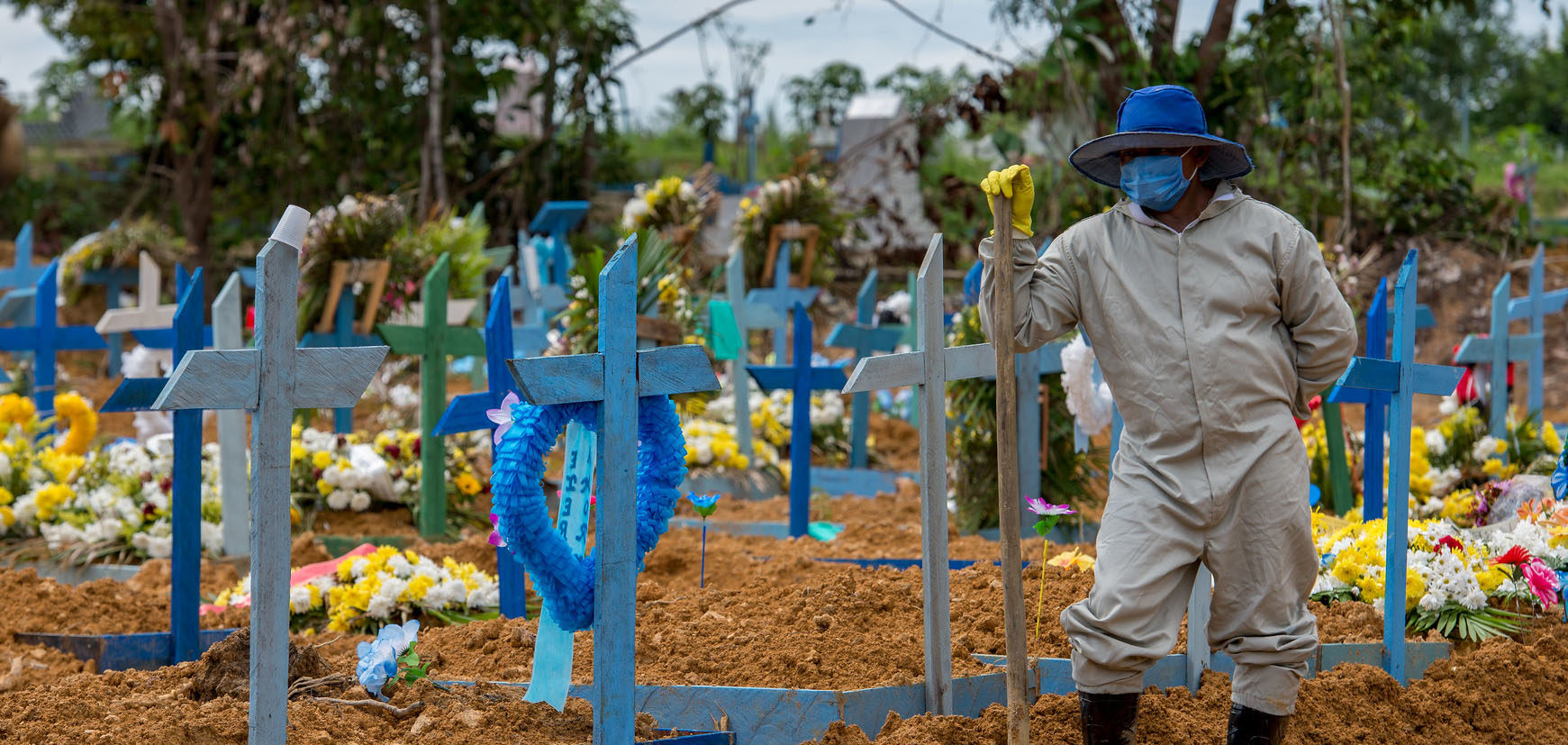Big Banks Are Holding the Global South to Ransom. Here’s How We Stop Them
by Daniel Willis
19 October 2020

With a collapsing healthcare system and one of the highest per capita death tolls in the world, Ecuador has felt the full force of Covid-19 on both its population and its economy. Alongside the shocking scene of overflowing morgues and bodies piled up in cardboard boxes has come a deep economic depression which has severely limited the government’s ability to both respond to the public health crisis and pay its $17.4bn foreign debt. An emergency loan has recently been provided by the IMF, but only on the condition that Ecuador imposes even harsher austerity on its population.
But Ecuador is not alone. Covid-19 has accelerated a debt crisis across much of the Global South, and has significantly limited the ability of governments to respond to the pandemic. Kenya, for example, which has roughly 18 times fewer doctors per person than the UK, will this year spend $2.7bn paying off its debts, compared to only $1.86bn on healthcare – one of 64 low-income countries spending more on debt repayments than on public health.
This debt crisis has been brewing for decades. Private sector lending to the Global South has grown exponentially since the 2008 financial crash as investors have looked for riskier markets in which to turn bigger returns. Meanwhile, public lending from wealthy nations and international institutions (like the IMF and World Bank) in the Global North has also increased steadily – often as a means of preventing countries from going bankrupt so that they can continue to pay their private creditors.
There have been some attempts at debt relief. In April, the G20 agreed to suspend some debt payments until the end of 2020, giving many countries vital breathing room, and last week the G20 agreed to extend this for another six months. However, not every country was eligible for this initiative, and only 43 of the 73 that were applied. The scheme also only applied to debt payments between governments, not to debts owed to the IMF, World Bank or the private sector; yet in some countries, 50-70% of foreign debt is owed to the private sector.
Investors like BlackRock, HSBC and Goldman Sachs deliberately loan to governments in the Global South because there is a higher rate of return, but in doing so they also accept a higher degree of risk. Despite this, the sector has so far refused to suspend debt, much less cancel it, instead pushing the responsibility onto the public sector (which, without private sector debt cancellation, effectively subsidises the banks, as the money saved from the G20 debt suspension initiatives is not diverted into public healthcare, but instead goes straight to private lenders). Despite being called upon by world leaders to restructure or cancel debts, banks have continued to collect them, and at a higher rate of interest than other creditors.
All this has given significant, antidemocratic power to the banks of wealthy countries to determine the futures of citizens in poor countries. Assets under management by BlackRock, for example, are estimated to be worth more than 2.5 times the GDP of Africa. The IMF has said that unless the debt situation in the Global South is resolved, austerity will be inevitable. BlackRock has the power to decide whether it is.
The lesson from the pandemic is that governments will protect banks, but not those most in need. Just as the UK government initiated a mortgage holiday for landlords without offering anything comparative for renters, the IMF and World Bank have so far only reduced the borrowing risks for the private sector without ensuring sufficient debt relief. The banks will never voluntarily sacrifice their profits – it is now up to the G20 and IMF to compel the private sector to cancel debts. They will only do so in response to pressure from below.
Last week, G20 finance ministers and the IMF met to decide on their next steps for limiting the economic impacts of Covid-19. To coincide with these meetings, civil society organisations around the world – including Global Justice Now, where I work coordinated a Global Week of Action on Debt Cancellation. Our hope was to revive the global anti-debt movement of the 1990s and 2000s, the same that compelled the G8 to commit in 1999 to $100bn of debt relief; and the House of Commons to pass a 2010 act preventing so-called “vulture funds” from using UK courts to extract harsh payments from indebted countries, mostly in the Global South. We’re now calling for genuine debt cancellation, including from private creditors, and wide-ranging reforms to the unfair international debt system. We’ve won before, and can win again.
However, we won’t if only NGOs and economic justice campaigners take up the cause. For a revived anti-debt movement to succeed, it is essential that campaigners are able to make connections with broader social movements and can communicate why debt is an issue of imperialism. Whilst the decolonisation movements have recently reopened conversations around historic wealth extraction – notably in the city of Bristol – they have yet to demonstrate how many of these injustices are perpetuated in Canary Wharf and the City of London today.
Even the managing director of the IMF has said that without urgent reforms to the international debt system, indebted countries will face an insolvency crisis, one that will leave them unable both to repay their debts and to meet their social obligations to their citizens. But we can’t leave it to the IMF and private lenders to resolve this problem – the resulting solution will inevitably put private profit before human rights. We must seize this moment to demand debt justice for the Global South, once and for all.
Daniel Willis is an economic and climate justice campaigner at Global Justice Now.